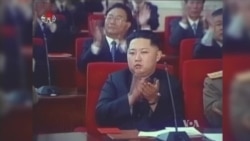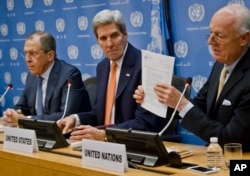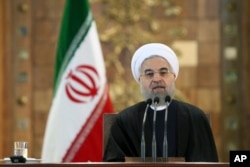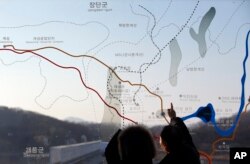U.S. Secretary of State John Kerry is traveling to Europe, the Middle East and Asia for talks on issues including the multinational effort to bring political stability to Syria and North Korea’s recent nuclear test.
Kerry's first stop Wednesday will be to Switzerland, where more than 40 heads of state and government are expected to attend the World Economic Forum.
Vice President Joe Biden and Defense Secretary Ash Carter also will attend the annual gathering that pairs governments with executives from some of the world’s leading companies.
A senior State Department official says the four economic focal points for Kerry will be the importance of tackling corruption, clean energy initiatives, expanding Internet connectivity, and the environment.
The annual World Economic Forum serves a “benchmark exercise” for officials on issues that will be of key important to officials for the rest of the year, said John McArthur, a global economy analyst with the Brookings Institution.
Russia talks come at critical time
Before the forum, Kerry will meet with his Russian counterpart, Foreign Minister Sergey Lavrov.
Their bilateral talks come at a critical time in the multinational effort to help foster a political transition in Syria.
The United States and Russia are part of the International Syria Support Group, which is backing a United Nations-led effort to launch political talks between the Syrian government and opposition. The two countries, however, are at odds over support for Syrian President Bashar al-Assad.
Efforts to launch the talks on a political transition in Syria on January 25 appear to be in jeopardy.
A U.N. spokesman said Monday the world body could not send out invitations for the talks until there was agreement on which opposition representatives should attend. Earlier, the Syrian government said it wanted to see an opposition list before the talks.
According to Russia’s Interfax news agency, Deputy Foreign Minister Mikhail Bogdanov said Friday there could be more clarity on the date for intra-Syrian talks following the meeting between Kerry and Lavrov.
Iran nuclear implementation is major concern for Gulf leaders
From Switzerland, Kerry travels to Riyadh for talks with Saudi officials and foreign ministers of the Gulf Cooperation Council.
The visit comes days after the implementation of the Iran nuclear deal, an agreement that Saudi Arabia and other Gulf countries say could lead to Iran destabilizing the region.
A U.S. effort has been under way to keep tensions between U.S.-ally Saudi Arabia and Iran from spilling over into other issues of regional concern, such as unrest in Yemen.
From Riyadh, Kerry travels to Laos and Cambodia for talks to set the stage for Association of Southeast Asian Nations (ASEAN) summit in February that will be hosted by President Barack Obama.
The White House says the gathering would “further advance the [Obama] administration’s rebalance to Asia and the Pacific.”
China key in response to North Korea’s nuclear activity
Kerry’s final stop, China, comes amid heightened concerns about North Korea’s test of what Pyongyang said was a nuclear device and the possible response from the international community.
Deputy Secretary of State Anthony Blinken discussed North Korea’s provocation with his South Korean and Japanese counterparts last week in Tokyo.
“All parties affirmed our mutual interest in security, a robust international response to uphold a rules-based order,” the State Department said Monday following the trip.
Analysts say China is key to an effort to convince North Korea to cooperate with the international community.
“North Korea gets something like 80 percent of its food and fuel from China and also China is North Korea’s closest friend, for what it’s worth, in the international community,” said Council on Foreign Relations analyst Scott Snyder.
He added that China might be reluctant to support additional U.N. Security Council penalties against North Korea because of concern further sanctions against Pyongyang could increase regional instability.

















